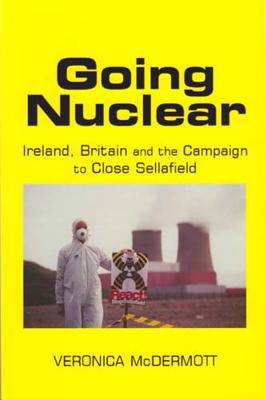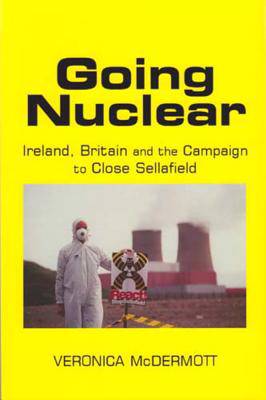
- Retrait gratuit dans votre magasin Club
- 7.000.000 titres dans notre catalogue
- Payer en toute sécurité
- Toujours un magasin près de chez vous
- Retrait gratuit dans votre magasin Club
- 7.000.0000 titres dans notre catalogue
- Payer en toute sécurité
- Toujours un magasin près de chez vous
Going Nuclear
Ireland, Britain and the Campaign to Close Sellafield
Veronica McDermott
Livre relié | Anglais
90,95 €
+ 181 points
Format
Description
For more than two decades, all parties in Ireland played out their obsession with 'closing down Sellafield' with each other and with the Irish public. Going Nuclear explores the historical origins of Ireland's anti-nuclear stance; how it became a defining issue in Irish politics and British-Irish relations of the late 20th century and served as an allegory for the wider debate on nuclear power throughout western society. Going Nuclear coincides with the 50th anniversary of the Windscale Fire of October 1957, the worst major nuclear accident known to the world before Chernobyl. 2008 also marks the 30th anniversary of a new mass protest movement in Ireland in 1978 against a proposal to build a nuclear power station at Carnsore Point in Wexford. The book sets out a non-partisan account of these events and other milestones in Ireland's political dispute with Britain over Sellafield that culminated in a series of failed international legal actions in the early years of this century. Based on original research, enlivened by interviews with many key figures, this is an absorbing story of Ireland's obsession with Britain's nuclear industry as an extension of our nationalist heritage, of the collision between the worlds of science and politics and of the personal experiences and recollections of many of those directly involved in the Sellafield campaign. In the process, new light is shed in previously dark corners of our relationship with our nearest neighbour and some of our most cherished prejudices about Britain and the nuclear issue are challenged and exposed.
Spécifications
Parties prenantes
- Auteur(s) :
- Editeur:
Contenu
- Nombre de pages :
- 336
- Langue:
- Anglais
Caractéristiques
- EAN:
- 9780716529088
- Date de parution :
- 01-01-08
- Format:
- Livre relié
- Format numérique:
- Genaaid
- Dimensions :
- 165 mm x 235 mm
- Poids :
- 671 g

Les avis
Nous publions uniquement les avis qui respectent les conditions requises. Consultez nos conditions pour les avis.






